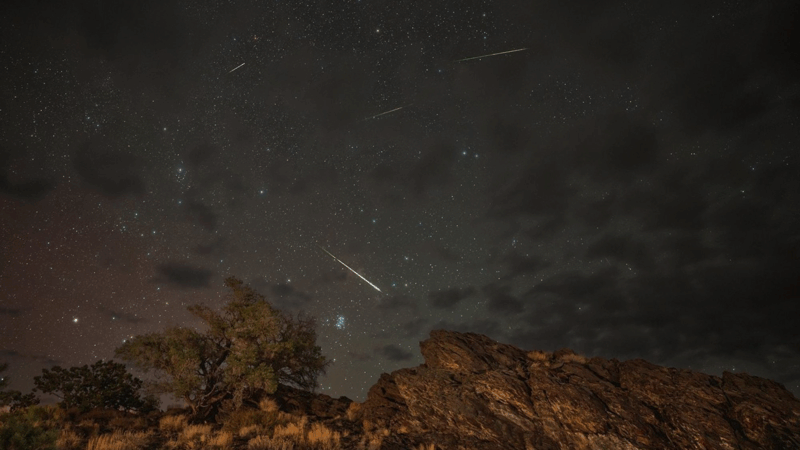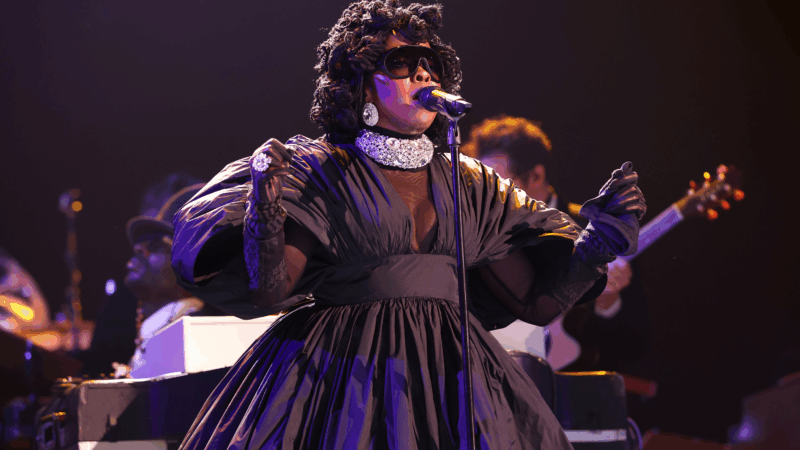Blame it on the moon. This year’s Perseids meteors won’t be as visible at their peak
The annual Perseids meteor shower will reach its peak next week. But astronomers say it won’t be as visible as it has been in recent years.
A full moon is also expected during the peak — Aug. 12 into the 13th — and will likely wash out the view.
“A few bright meteors may still be seen in the predawn hours, but viewing conditions are not ideal,” NASA said.
If you still want to try to catch a glimpse, here’s what to know.
Best viewing conditions
This year, the Perseids began on July 17, and it will be visible until Aug. 23, NASA says. In an hour, one could see about 25 meteors. Characteristics of the Perseids include bright fireballs and long “wakes,” the streak of light and color that follow meteors.
While NASA recommends trying to catch a glimpse of the Perseids before dawn, you may be able to see some meteors as early as 10 p.m. They are most visible in the Northern Hemisphere.
Robert Lunsford, an observer with the American Meteor Society, recommends facing north and settling in.
“Don’t go outside and stand,” he said. “You’ll get really tired and bored quick. Get a nice lounge chair where you’re comfortable.”
And be patient.
“Sometimes you go 10, 15 minutes without seeing anything, and all of a sudden, four or five will show up in the same minute. So they’re notorious for appearing in bunches like that,” he said.
Where do they come from?
As comets orbit the sun, they leave a trail of dust and particles, including meteors, behind them. The Perseids meteors originate from the Swift-Tuttle comet, which has a nucleus of about 16 miles wide, and takes more than 130 years to circle the Sun.
The Swift-Tuttle comet last entered the solar system in 1992, during which observers could see about 200 meteors per hour. The comet leaves such a mess of debris when it comes, we’re able to catch the Perseids every year, Lunsford said.
The Perseids is the most popular of the meteor showers, according to NASA. And while it’s not the strongest, people gravitate to it because it happens in the summer, Lunsford said.
“Most of the other strong meteors occur in the late autumn or early winter, and it is really frigid outside. So that’s the bigger reason,” he said.
Supreme Court appears split in tax foreclosure case
At issue is whether a county can seize homeowners' residence for unpaid property taxes and sell the house at auction for less than the homeowners would get if they put their home on the market themselves.
Top House Dem wants Justice Department to explain missing Trump-related Epstein files
After NPR reporting revealed dozens of pages of Epstein files related to President Trump appear to be missing from the public record, a top House Democrat wants to know why.
ICE won’t be at polling places this year, a Trump DHS official promises
In a call with top state voting officials, a Department of Homeland Security official stated unequivocally that immigration agents would not be patrolling polling places during this year's midterms.
Surgeon general nominee Means questioned about vaccines, birth control and financial conflicts
During a confirmation hearing, senators asked Dr. Casey Means about her current positions and her past statements on a range of public health issues.
Rock & Roll Hall of Fame 2026 shortlist includes Lauryn Hill, Shakira and Wu-Tang Clan
The shortlist also includes a 1990s pop diva, heavy metal pioneers and a legendary R&B singer and producer.
This novel about family drama is so good you may want to re-read it immediately
Allegra Goodman's new novel is called This Is Not About Us, but critic Maureen Corrigan says that title is coy: Readers are bound to see aspects of themselves and their families in these pages.








